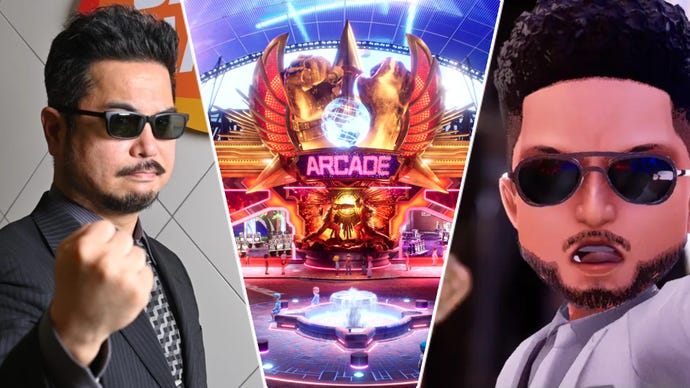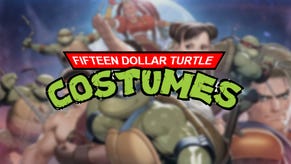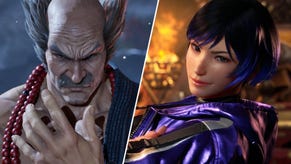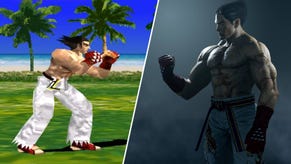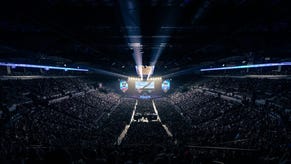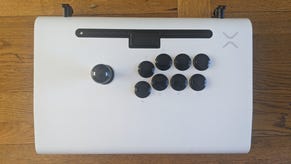Tekken 8 is sadly missing in action in arcades for now – but its creators still strive to honor arcade culture
Tekken 8 is the first title in the series to debut on console over arcades. But the game’s creators remain determined to honor Tekken’s arcade roots.
Tekken 8 features a lot of firsts. It also marks some possible lasts. To me, an arcade nerd, one particular first and last stands out from the crowd: this is the first Tekken game to launch on home consoles before it hits arcades. With the way the wind is blowing, this also probably means that we’ve already seen the last Tekken release that is arcade-first, back with the 2015 arcade release of Tekken 7.
I understand why this is happening, and Tekken isn’t the first series to do this. Capcom already took the plunge with Street Fighter 5, and continued the trend with Street Fighter 6. Indeed, six months on from SF6’s release, SF6 ‘Type Arcade’ is announced, but yet to be widely released. I get why it’s right and proper that this be the case; and yet, at the same time, my heart breaks.
Thankfully, I know I’m not alone in the heartbreak. I’m in good company, in fact - sharing in the pain with the guys behind Tekken, who make the move with the heaviest of hearts.
“I feel kind of similar, because I grew up in arcades as well,” Tekken boss Katsuhiro Harada nods along when I explain my bittersweet feelings towards Tekken 8’s console debut.
“But it's just something that we can't change; it's a sign of the times. It's just the way that people's lifestyles have changed, it's adapted so that arcades just aren't a very prevalent part of their life as it used to be.”
The death of the arcade has been an ongoing phenomenon for a good long while. Arcades and other amusement centers in the west are now generally filled with weirdly uninspired ports of popular mobile games, like Flappy Bird Arcade or claw machines. You’re lucky to even find a light gun game, leave alone a fighter. Japan had always fared better - but the Covid-19 pandemic absolutely ravaged the Japanese arcade scene. The situation feels pretty dire.
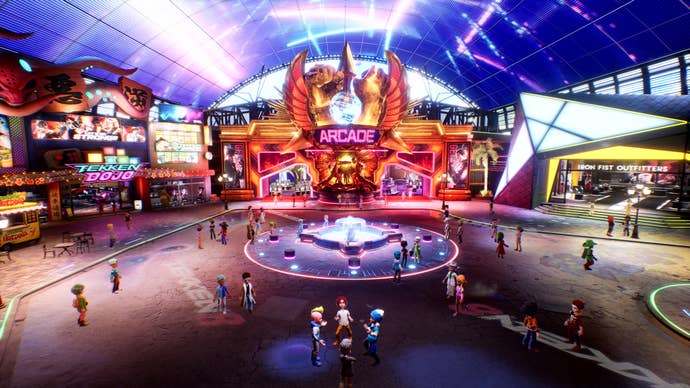
“I've been in Japan for 25 years and probably part of why I ended up staying here for so long was because when I first went, there were arcades and it was such an exciting place,” adds Tekken producer Michael Murray, who has been at Harada’s side hyping up the series and interpreting for as long as I can remember. “And, you know, we had all the fighting games there, and you could meet people, and it was great.”
There were a lot of goals in Tekken 8’s development, but one key line of thinking was that the developers wanted to honor that arcade culture that the series was now serving as a secondary market, if not yet leaving it behind altogether. That was the genesis of ‘Arcade Quest’ - which is Tekken’s more light-hearted story mode for this entry, sitting as a direct counter to the cutscene-driven, silly-but-serious conclusion to the Mishima saga that is the cinematic story.
If you’ve not yet played Tekken 8, Arcade Quest is basically a simulation of life in the arcades. Players create a custom avatar to represent them in the arcades - and then you progress by playing and getting better at Tekken 8 in this virtual arcade. It’s part teaching tool, part story mode, and part homage to the good old days. People who ‘were there’ can look forward to in-jokes and references; newcomers might not only learn how to get good at Tekken, but also learn a little about the culture that molded the fighting game genre.
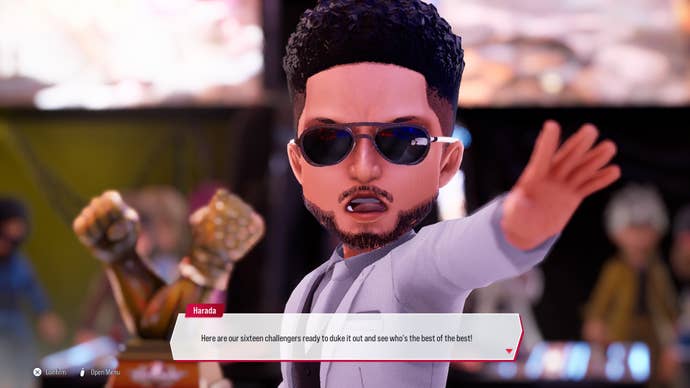
“It's kind of supposed to foster that same environment,” says Murray of the mode. “So for people like us who were there, you kind of get a feeling of 'oh, this is what it was like,' and the story goes through a kind of arcade-centric culture as well. But for new players who have never been to the arcade in that era, they can play that and get a feeling for what it was like.
“Because we love that culture so much, we tried to implement it into that mode.”
In the days since Tekken 8 launched, I’ve watched people’s attitude to Arcade Quest with great interest. Like Street Fighter 6’s Battle Hub, this aesthetic also functions as a gateway to online multiplayer - and I’ve been overjoyed to see things like queues behind machines to play against specific high-end or famous players. Sure, you can’t put a quarter into the corner of the monitor… but you can form an orderly queue. It’s beautiful to see.
Culture is one thing, but the training tool element is perhaps the most important part of the mode. Tekken 8 already features a strong story-based element in the story of its characters - but that mode is built for spectacle, not education. In the old days, you might head into an arcade and watch other players, learning, getting your ass whupped, but improving because of it. Arcade Quest is likely to be a bit kinder, but it’s designed almost as a Trojan Horse - you enter for the cute mode, you leave with a much stronger knowledge of Tekken fundamentals.
“Even without much knowledge of the game, you won't have to go through all these settings or whatever,” Harada explains, highlighting the key difference between learning via Arcade Quest and simply hopping into training mode. “You're following a story in the game, and at the same time it's teaching you the basics and fundamentals.”
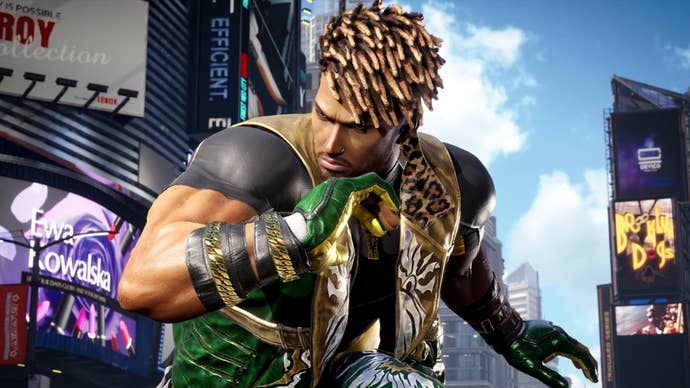
So, the arcade is dead - long live arcade culture, though. And through that, arcades will likely never truly die - they’ll remain available as special-interest outlets, like how in the UK and US we’ve seen a resurgence of sorts, as combination arcade-bars crop up to cater to nostalgic thirty-somethings with an alcohol dependency and disposable income. That target consumer? That’s me. And there’s a fair few of us. But we’re also not the audience Tekken 8 is targeting en masse - and so it makes sense that Bandai Namco’s target has shifted.
“Although we miss that kind of culture, it's tough on the other side because only the Asian markets had the arcades towards the end, and so all the western players were looking at their asian counterparts playing the brand new game and they're so frustrated because they can't have access to it for a year or two,” Harada elaborates, eluding to frustration online at the gap between Tekken 7’s 2015 arcade release and 2017 console debut.
“And then when they finally meet up with players at a tournament who have had the game longer than they do, it's very frustrating for them. So there's a good side to starting off from the console version. Everyone gets to enjoy it at the same time.”
Every cloud has a silver lining, I suppose. In Tekken 8’s case, the loss of an arcade-first release is the gain for everyone at home who can experience it first-hand, all at once, this weekend. Most importantly, that arcade DNA runs through to Tekken’s very soul - in the hearts of its creators, in the structure of its modes, and in every heart-stopping, screeching, machine-banging slow motion finish. New releases or not, what arcades gave us is forever.
Tekken 8 is out on out now for Xbox Series X/S, PS5, and PC. You can read our 5-star review of the game here.
